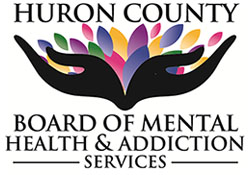Restorative Practices & Parenting Programs:

"I am now in a position where I have a great relationship with my family... I can talk with them openly about how I'm feeling."
Restorative Practices:
One of the first programs developed, the Restorative Practices Intervention Program continues to work with victims and offenders to overcome conflicts, promote accountability, and produce positive outcomes for the community.
By offering victim/offender mediation to repair the harm that has been done to the victim and/or community, the restorative practice program empowers the victim to communicate their needs, as well as holds the offender accountable for their action.
The program is primarily completed with individuals between the age of 10 and 21 and involves meetings in which people affected by the crime are able to talk about what happened and how to repair the harm that was caused. By allowing the victim to express their grief, face the offender, and ask questions, it is able to provide the victim a sense of closure. For the offender, the restorative practices intervention allows them the opportunity to apologize and explain their actions, as well as feel better about returning to the school or community.
Parenting 101, Group Courses:
If you consider the most significant and difficult endeavor that you've ever taken on, such as giving a presentation, running a marathon, taking a licensing exam - did you just wing it? In most areas of life, we like be prepared; however, when it comes to parenting, we can sometimes feel that things will just fall into place naturally.
We created a Parenting 101 series of classes designed to help caregivers understand their child's emotional, physical, and psychological needs in order to assist them in developing into a happy and healthy adult. We recommend this series for parents, grandparents, foster parents or other caregivers. Once registered with the agency, you are able to attend one or all five of the parenting courses and are welcome to start at any point in the series.
Class 1: Foundation
Focused on psycho-social development and parenting styles
Class 2: Dealing with Trauma
Recognizing how our own trauma can impact the way we view and parent children, specifically focused on development, behaviors and academics.
Class 3: Family Structure
Understanding the importance of creating healthy boundaries and clear family roles.
Class 4: Dealing with Bad Behaviors
Establishing expectations and rules; recognizing the difference between punishment and consequences; noting important times to grow your child's awareness; and loving your child despite difficult behaviors.
Class 5: Co-Parenting and Blended Families
Focused on effective communication, conflict resolution, and overcoming differences in parenting techniques.
Intensive Home-Based Therapy for Troubled Youth:
Developed for families with special needs, the in-home counseling program is designed to provide services that will wrap around a family’s schedule and needs. To qualify for these services, families would be dealing with difficult youth, between the ages of 11 and 18, who have shown two or more of the following behaviors for six months or longer:
- Persistent or serious lying
- Physical aggression
- Repeated running away
- Opposition toward authority figures
- Destruction of property
- Threats of suicide
- Chronic truancy
- Stealing
- Threats of violence
- Setting fires
- Extreme disrespect
- Risk for out-of-home placement
The goal of the in home counseling program is to address these issues and assist caregivers with the knowledge and tools to parent, love, and set proper limits. This is a short term and intense program to work with the family to improve behaviors and build healthy communication strategies. As an intensive program, we utilize 4-6 hours of face-to-face services per week, primarily with caregivers and is completed after 6-months. The program is designed to help and empower caregivers to establish and maintain consistency.
Impact Program, Adolescent Sexual Behavioral Program:
The Impact Program was released several years ago to address sexual behavioral concerns with adolescents. This is an evidence-proven and strengths-based program that focuses on treating the adolescent as a whole person, inclusive of the sexual behavioral concern and other significant behavioral or emotional issues.
Focused specifically on adolescent males and females, between the ages of 8 and 21, we utilize the most current models, techniques, and interventions available to address inappropriate or harmful sexual behaviors.
What Defines Problematic?
Most parents do not want to think about their children as sexual beings until they become young adults; however sexual behavior may start as early as infancy. Sometimes sexual behavior can be described as harmless curiosity and, at other times, it can be harmful to themselves or others.
Parents should be concerned if their children’s sexual acts or behaviors have one or more of the following characteristics:
- Sexual behavior occurs frequently
- Takes place between children of different age groups
- Are initiated with angry, strong, or upset feelings
- Cause harm or potential harm (physical or emotional)
- Do not respond to typical parenting strategies
- Involve coercion, force, or aggression of any kind
Different types of sexual behavior problems include:
- A child who sexually touches themselves, causing physical harm or damage
- A child who often attempts to look at others without clothes on
- Sexual interactions with other children, involving touching or oral-genital contact and intercourse
- Sexual behaviors that involve force, coercion, or aggression of any kind.




